Refactoring React code can be tedious and error-prone, especially in large projects with legacy components. AI tools simplify this process by automating repetitive tasks, suggesting updates, and improving code quality. Here’s a quick look at the best AI tools available today:
- GitHub Copilot: Provides real-time suggestions for refactoring React code, including converting class components to functional ones and cleaning up logic. Integrates with popular IDEs.
- Tabnine: Focuses on privacy with local deployment options and team-specific coding style adaptation.
- Google Gemini Code Assist: Specializes in large-scale refactoring, offering inline previews and multi-file updates.
- Zencoder AI Coding Agent: Automates complex workflows like dependency updates and multi-repo refactoring.
- Sourcery: Helps maintain clean code by identifying duplicated logic and inefficiencies.
- UXPin: Bridges design and development by generating production-ready React code from prototypes.
Quick Comparison
| Tool Name | Key Features | Ideal Use Case | Integration Options | Security/Privacy | Pricing |
|---|---|---|---|---|---|
| GitHub Copilot | Real-time suggestions, code completion | Daily coding, quick fixes | VS Code, IntelliJ, etc. | Cloud-based | $10/month (individual) |
| Tabnine | Local deployment, team coding style | Privacy-sensitive projects | IDE support, private servers | Strong privacy controls | $12/month per user (Pro) |
| Google Gemini Code Assist | Multi-file refactoring, inline previews | Legacy code modernization | Cloud-based IDE integration | Enterprise-grade security | Enterprise pricing |
| Zencoder AI | Workflow automation, testing integration | Complex refactoring | Local system, version control | Local operation | $19/month per user |
| Sourcery | Real-time feedback, quality maintenance | Preventing technical debt | IDE plugins, CI/CD | Standard security | Free/$12 per user (teams) |
| UXPin | Design-to-code, React component libraries | Design-development sync | Git repository integration | Standard security | $24/month per editor |
Each tool addresses specific challenges, from legacy updates to privacy concerns. Start by evaluating your project’s needs and testing free trials to find the best fit for your team.
AI HELPED ME TO REFACTOR A REACT COMPONENT STEP BY STEP
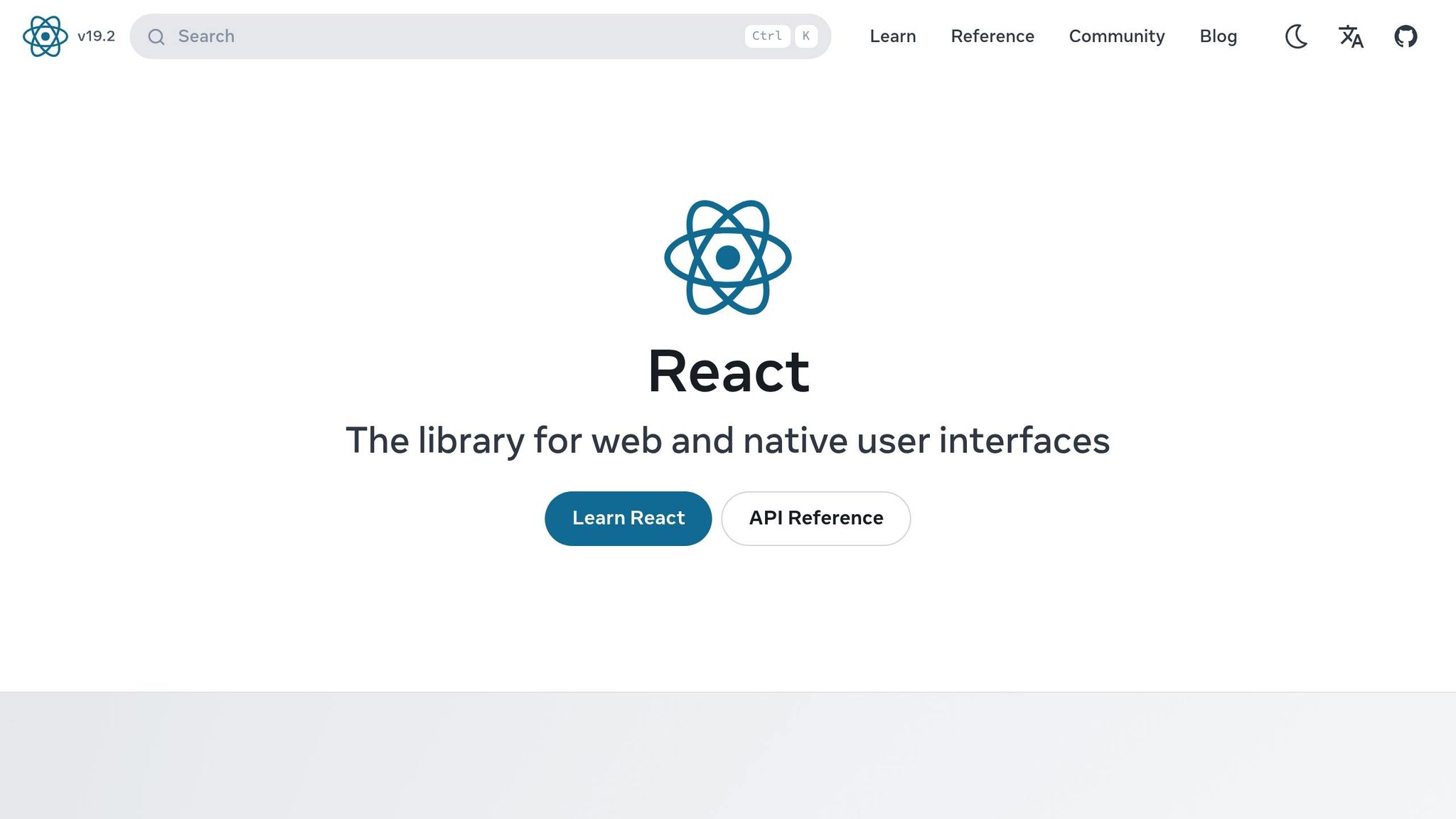
How to Choose AI Refactoring Tools
Selecting the right AI refactoring tool means focusing on its ability to analyze code, fit seamlessly into your workflow, and maintain security standards. These factors ensure you avoid disruptions and achieve meaningful improvements.
Code Analysis and Refactoring Capabilities
The backbone of any AI refactoring tool is its ability to analyze code intelligently and suggest meaningful updates. Look for tools that can identify redundant code, inefficient functions, or outdated patterns, especially in frameworks like React. For instance, Google Gemini Code Assist excels at modernizing React components by converting legacy class components into functional ones using hooks like useState and useEffect. Similarly, Sourcery pinpoints areas for optimization and offers suggestions you can accept or reject.
When evaluating tools, test them on a sample of your codebase to see if their recommendations align with your project’s unique coding standards. A tool that delivers context-aware suggestions while respecting your coding style is invaluable. Once satisfied with its analysis, check how well it integrates into your development process.
Developer Workflow Integration
A tool’s ability to integrate seamlessly with your current development environment is critical for maintaining productivity. Many top-tier AI refactoring tools are designed to work within popular IDEs like VS Code, IntelliJ IDEA, and Visual Studio, while also syncing with version control systems like Git. For example, UXPin enhances collaboration between design and development teams through its Merge feature, which syncs Git repositories and exports production-ready React code to projects or online environments like StackBlitz.
"As a full stack design team, UXPin Merge is our primary tool when designing user experiences. We have fully integrated our custom-built React Design System and can design with our coded components. It has increased our productivity, quality, and consistency, streamlining our testing of layouts and the developer handoff process."
– Brian Demchak, Sr. UX Designer at AAA Digital & Creative Services
Also, consider whether the tool supports multi-file refactoring. Tools like Google Gemini Code Assist and Zencoder excel at handling changes across multiple files and repositories, which is essential for larger, more complex projects. A smooth multi-file refactoring process can significantly reduce the time spent on tedious updates.
Security and Data Privacy
Security is a top priority when choosing an AI refactoring tool. Opt for tools that safeguard your code and provide clear, transparent change logs. For example, Tabnine offers robust privacy controls by running locally and supporting private models, ensuring your code remains within your organization’s network.
It’s also important to verify that the tool complies with relevant privacy standards and offers on-premise deployment if needed. Some tools process code snippets on external servers, which may not align with your security requirements. Additionally, tools like Zencoder and Google Gemini Code Assist emphasize transparency by requiring developer approval for every change. These tools also provide detailed breakdowns of suggested modifications, allowing you to validate updates before applying them. Reviewing each change not only protects your code but also helps you better understand its structure and quality.
Best AI Tools for Refactoring React Code
When it comes to refactoring React code, the right tools can make all the difference. By focusing on code analysis, seamless integration into workflows, and robust security, these AI tools stand out for their ability to streamline development and address specific team needs.
GitHub Copilot
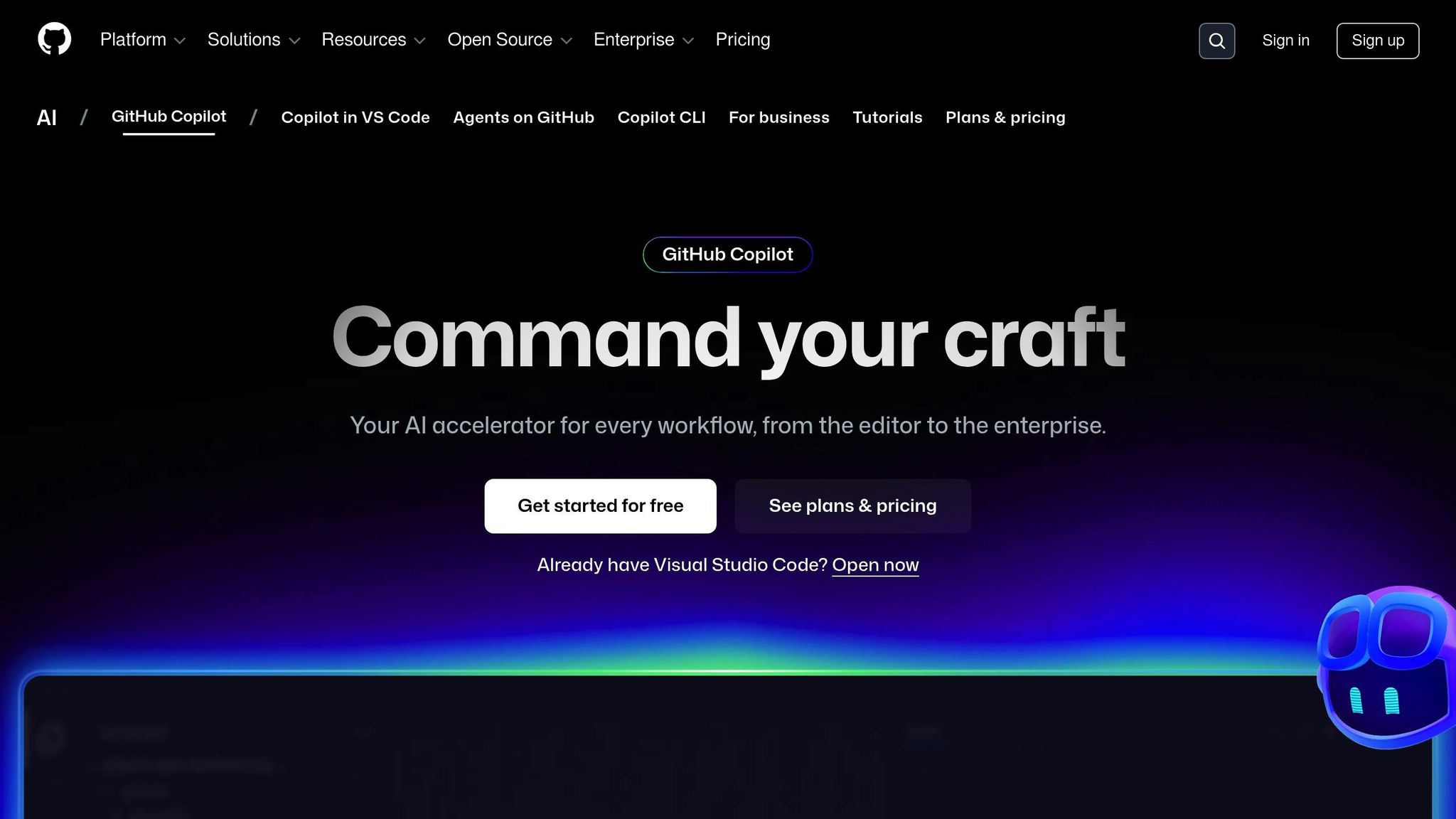
GitHub Copilot takes React development to the next level with its context-aware suggestions. It can refactor legacy class components into functional ones, split large render methods into smaller, more manageable functions, and simplify complex component logic. It also helps clean up repetitive patterns, rename variables, and improve code maintainability.
This tool integrates effortlessly with popular IDEs like VS Code, IntelliJ IDEA, and Visual Studio. By reducing the need for manual refactoring, Copilot speeds up development while fitting neatly into existing workflows.
Tabnine
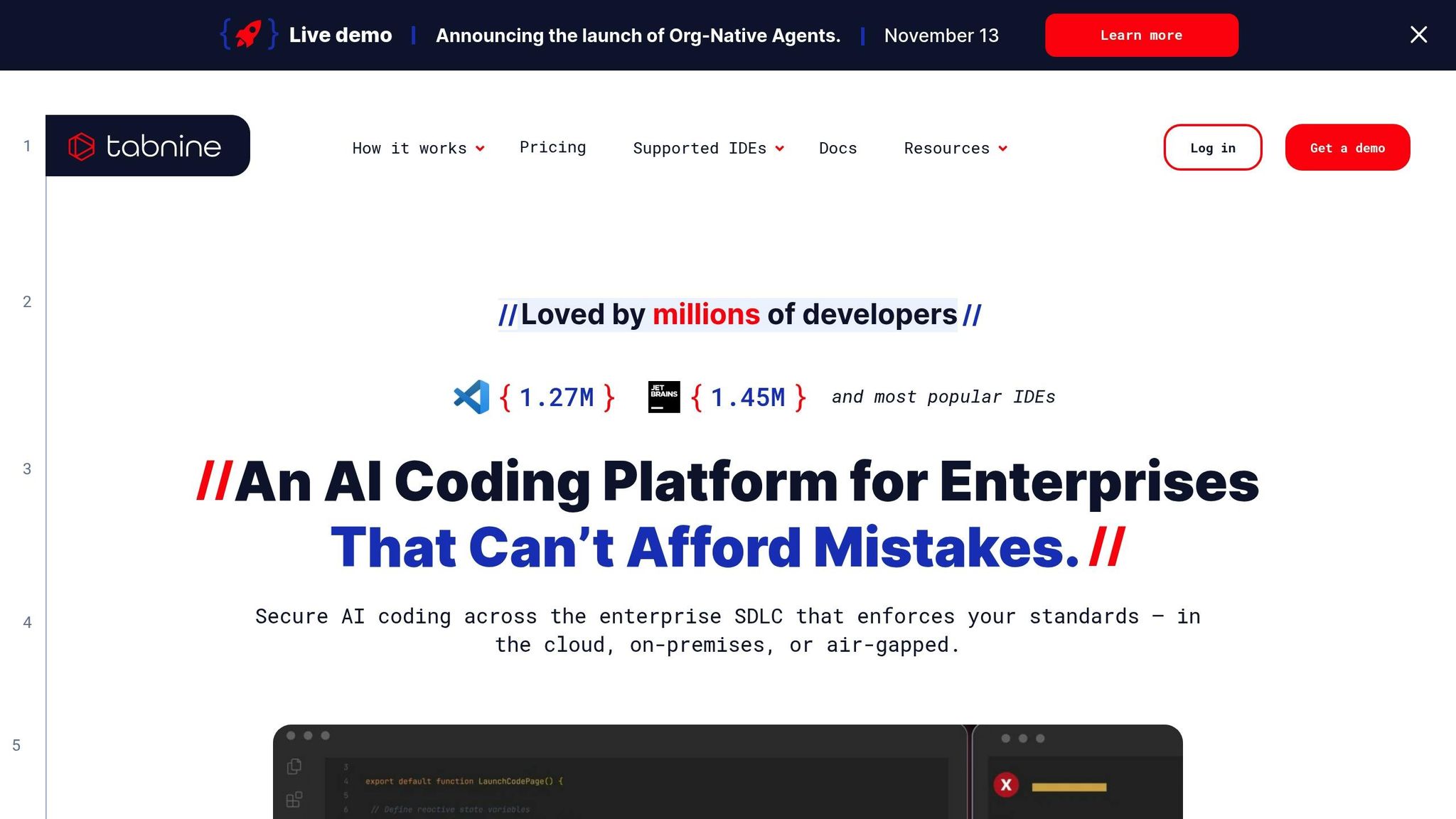
Tabnine emphasizes privacy and customization. Its adaptive autocompletion works locally or on private servers, ensuring your React code stays secure – an essential feature for industries with strict data protection standards.
The tool learns your team’s coding style, tailoring its suggestions to match your conventions. With on-premises deployment options, Tabnine provides strong privacy controls, making it a trusted choice for teams handling sensitive projects.
Google Gemini Code Assist
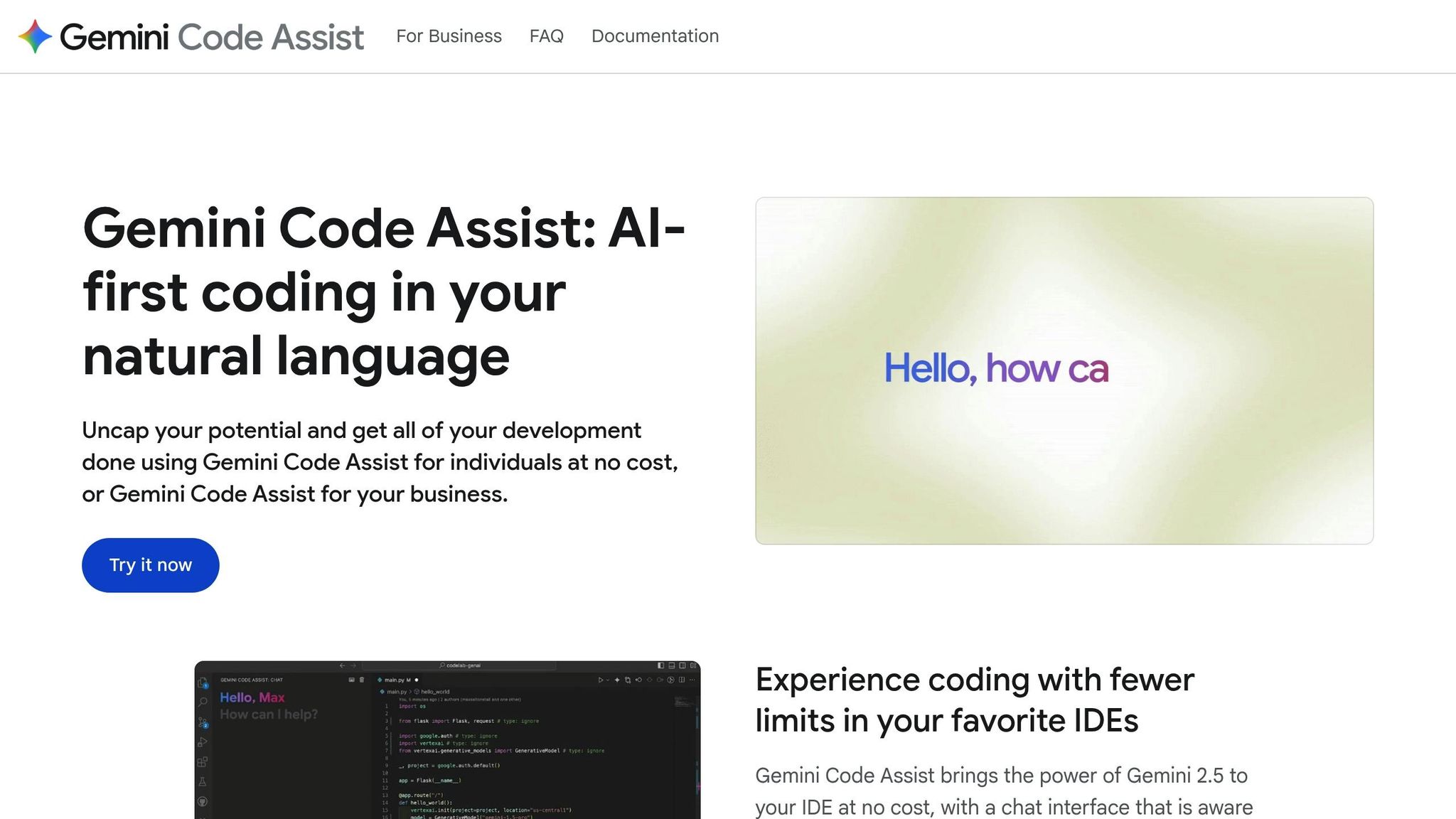
Google Gemini Code Assist focuses on structured editing and transparency. It offers inline previews of proposed changes, allowing developers to review and approve updates before implementation. This feature is especially valuable for large-scale projects, as it minimizes migration risks while ensuring the code remains accurate.
The inline preview feature ensures developers know exactly how their code will change, addressing the validation needs critical to enterprise environments.
Zencoder AI Coding Agent
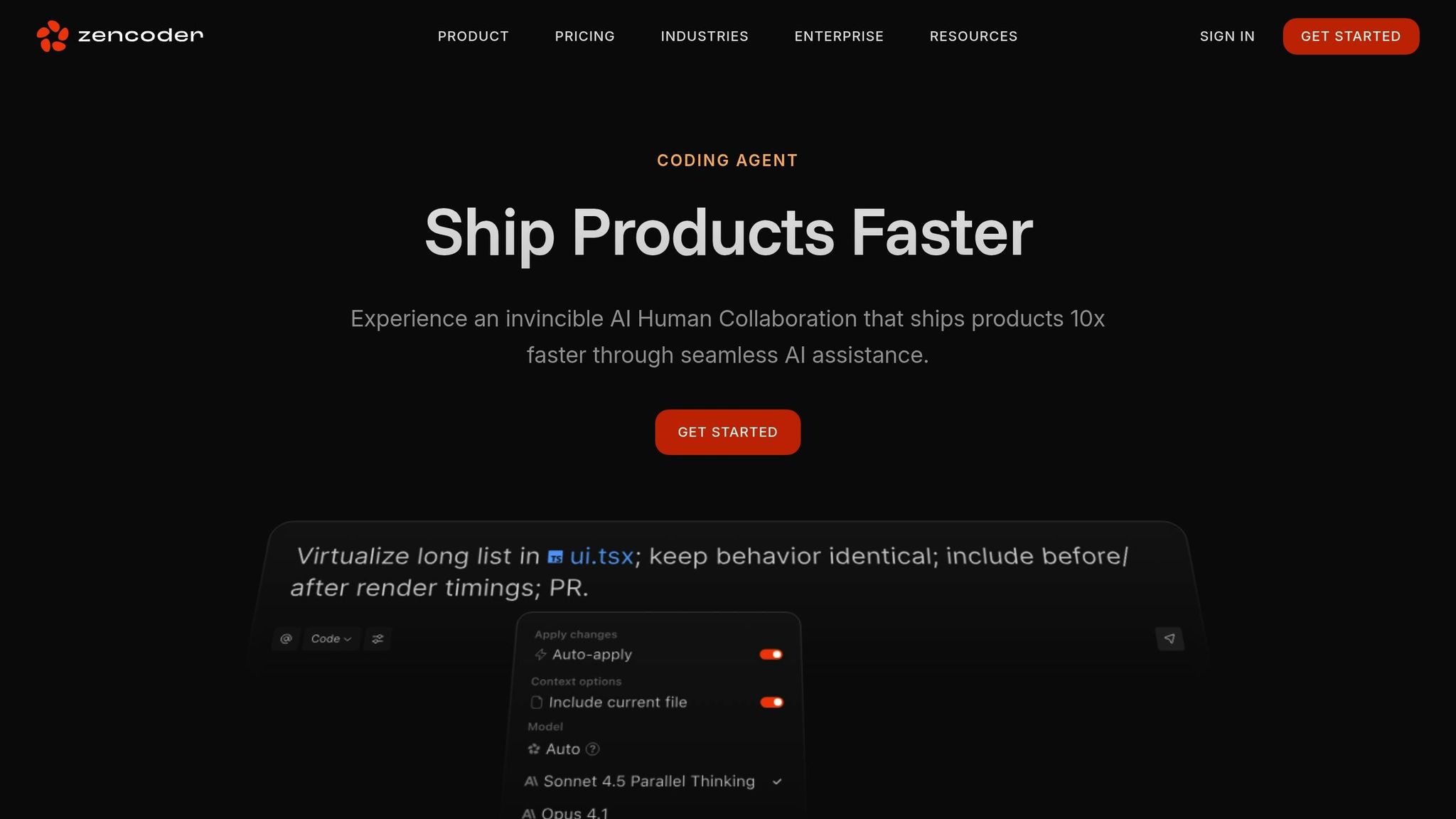
Zencoder AI Coding Agent automates complex refactoring workflows with precision. For $19 per user per month, it connects to local systems and version control to handle tasks like breaking down monolithic components, updating dependencies, and running thorough tests.
Developers retain full control, as every change requires explicit approval. This ensures that the refactoring process is both comprehensive and aligned with the team’s goals, from initial analysis to testing and documentation.
Sourcery

Sourcery is all about maintaining code quality. It continuously scans for duplicated logic, inefficient functions, and inconsistencies, offering real-time suggestions for improvement. Developers can accept or decline specific refactoring recommendations, such as optimizing state management patterns or improving rendering logic.
By monitoring code over time, Sourcery helps teams prevent technical debt and maintain a clean, efficient codebase.
UXPin

UXPin bridges the gap between design and development with its AI-driven design-to-code workflow. Teams can create interactive prototypes using built-in React component libraries like MUI, Tailwind UI, and Ant Design, or sync custom component systems directly from Git repositories.
The platform’s Merge feature ensures that Git repositories stay synchronized, enabling designers and developers to export production-ready React code effortlessly. Whether exporting code to projects or online environments like StackBlitz, UXPin streamlines collaboration and boosts efficiency.
"When I used UXPin Merge, our engineering time was reduced by around 50%. Imagine how much money that saves across an enterprise-level organization with dozens of designers and hundreds of engineers."
– Larry Sawyer, Lead UX Designer
sbb-itb-f6354c6
Tool Comparison
Selecting the best AI refactoring tool boils down to understanding your team’s priorities, budget constraints, and workflow specifics. Each tool has its own strengths tailored to different needs. Based on earlier discussions about workflow and security, here’s a side-by-side breakdown that highlights the key features, integrations, and costs of popular options.
Feature Comparison Table
| Tool Name | Primary Refactoring Features | Ideal Use Case | Integration Options | Security/Privacy | Pricing Overview |
|---|---|---|---|---|---|
| GitHub Copilot | Real-time code suggestions, block refactoring, code completion | Daily coding, rapid prototyping, quick refactors | VS Code, IntelliJ IDEA, Visual Studio plugins | Standard cloud-based processing | $10/month (individual), $19/month (business) |
| Tabnine | Privacy-first code completion, adaptive autocompletion, team coding style learning | Enterprise teams, regulated industries, privacy-sensitive projects | Local/private server deployment, popular IDE support | Strong privacy controls with on-premises options | Free tier, Pro $12/month per user, Enterprise custom |
| Google Gemini Code Assist | Large-scale codebase refactoring, class-to-functional component conversion, inline change previews | Legacy modernization, enterprise-scale migrations | Cloud-based IDE integration, multi-file editing | Enterprise-grade security backed by Google Cloud infrastructure | Enterprise pricing (contact for details) |
| Zencoder AI Coding Agent | Multi-step automation, dependency management, explainable edits, testing integration | Complex refactoring workflows, multi-repo projects | Local system and version control connection | Local environment operation with explicit approval required | Free plan; paid plans from $19/month per user |
| Sourcery | Real-time quality feedback, duplicated logic detection, performance optimization suggestions | Code quality maintenance, technical debt prevention | IDE plugins, CI/CD pipeline integration | Standard security with team repository controls | Free (open-source), $12/month per user (teams) |
| UXPin | Design-to-code workflow, interactive prototyping, React component library integration | Design-development collaboration, UI component modernization | Git repository sync, React library integration | Standard security, with enterprise options available | From $24/month per editor |
When it comes to pricing, GitHub Copilot and Tabnine are accessible for individual developers, offering straightforward monthly plans. On the other hand, tools like Google Gemini Code Assist cater to enterprise clients, with custom pricing reflecting their advanced capabilities for large-scale modernization projects.
Security is another differentiator. For industries like finance or healthcare, where privacy is paramount, Tabnine’s on-premises deployment is a major draw. Meanwhile, GitHub Copilot appeals to smaller teams with its seamless IDE integration, despite relying on cloud processing. Integration options also vary: Zencoder AI Coding Agent excels in managing complex, multi-repository environments, while UXPin bridges the gap between designers and developers by generating React code directly from design files.
The tools span a wide range of use cases. GitHub Copilot shines in everyday coding with real-time suggestions, while Google Gemini Code Assist supports large-scale refactoring for legacy systems. UXPin takes a unique approach, focusing on design-development collaboration by creating production-ready React code, which can help reduce future refactoring needs.
Ultimately, these tools offer scalable pricing and flexible features, making it easier for teams to evaluate their options through free tiers or trial plans before committing to a paid subscription.
Conclusion
AI-driven refactoring tools are reshaping how developers approach React code maintenance and updates. By automating repetitive tasks, cutting down on technical debt, and speeding up development workflows, these tools not only save time but also help maintain high-quality code. Beyond individual productivity, teams are seeing concrete benefits – fewer bugs, quicker release cycles, and substantial time savings that translate directly into business gains.
The six tools highlighted here each tackle specific challenges within the React ecosystem. GitHub Copilot shines with its real-time IDE integration, making it a go-to for daily coding tasks. Tabnine, with its privacy-focused features, is an excellent choice for enterprises with strict compliance needs. For teams working with older codebases, Google Gemini Code Assist simplifies the transition to modern React practices, such as converting class components to functional ones with hooks. Zencoder AI Coding Agent offers powerful multi-step refactoring, while Sourcery emphasizes maintaining clean, secure code with its real-time feedback and vulnerability detection. On the design front, UXPin bridges the gap between design and development, streamlining prototyping workflows for React projects. Each tool’s unique capabilities have already delivered measurable results across various industries.
For instance, Mark Figueiredo from T. Rowe Price shared that feedback cycles that once took days now happen within hours, dramatically shortening project timelines by months. These real-world outcomes highlight the importance of aligning tool capabilities with your team’s specific needs.
When choosing a tool, focus on the challenges your project faces. Teams dealing with legacy codebases may find Google Gemini Code Assist indispensable for seamless modernization. Organizations prioritizing data privacy will benefit from Tabnine’s on-premises deployment options. Design-heavy teams working on component libraries or prototypes might find UXPin invaluable, while developers looking for everyday coding assistance will appreciate GitHub Copilot’s real-time suggestions.
To ensure a smooth adoption, start small. Take advantage of trial periods to test how well a tool integrates into your workflow. Match the tool’s strengths to your team’s bottlenecks, whether it’s legacy upgrades, privacy concerns, or design-to-code transitions. And don’t forget – always validate AI-generated changes, especially for critical code, and maintain rigorous code review practices to uphold quality and foster team learning.
As React development evolves, these AI-powered tools are becoming indispensable for delivering faster, cleaner, and more maintainable code. By investing in the right tool for your needs, you’ll not only boost productivity but also set your team up for long-term success.
FAQs
How can AI tools like GitHub Copilot and Google Gemini Code Assist help streamline refactoring React code?
AI tools such as GitHub Copilot and Google Gemini Code Assist are transforming the way developers refactor React code. These tools use machine learning to analyze your codebase, offering smart, context-aware suggestions, automating repetitive tasks, and flagging potential issues as you code. The result? A smoother, faster workflow.
By taking over tedious manual tasks and reducing the likelihood of errors, these tools allow developers to focus on what really matters – enhancing code quality and ensuring consistency across projects. They’re especially helpful when working on large or intricate React applications, where refactoring can often feel like an overwhelming and error-prone process.
What should I look for in an AI tool to refactor React code, especially regarding integration and security?
When picking an AI tool to streamline your React code, start by considering how well it fits into your current development setup. Does it work smoothly with your favorite IDE, version control systems, and the React libraries you rely on? A tool that aligns with your workflow minimizes hiccups and keeps your process running smoothly.
Another key factor is security. If your codebase includes sensitive or proprietary information, you’ll want a tool that takes data privacy seriously. Features like encrypted data handling and adherence to industry standards are non-negotiable. Prioritizing these aspects ensures you can boost productivity without putting your codebase at risk.
How does UXPin’s design-to-code feature help streamline React development for teams?
UXPin’s design-to-code feature bridges the gap between designers and developers by allowing teams to craft interactive layouts using real React components. This approach ensures that designs aren’t just visually precise but also fully functional, streamlining the transition from concept to implementation.
By exporting production-ready React code straight from prototypes, teams can cut down on time, reduce handoff mistakes, and speed up development. This smooth workflow helps maintain consistency and efficiency throughout projects, making collaboration more effective.

